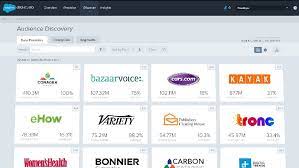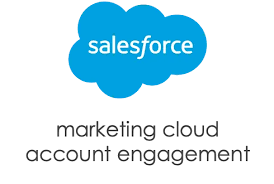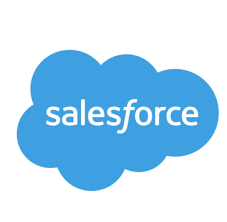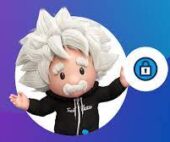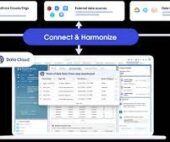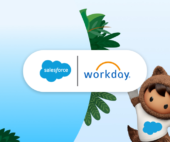When exploring the many marketing automation options on the Salesforce platform, you will find two Salesforce owned choices: Account Engagement or Marketing Cloud Engagement. However, discerning the key distinctions between Marketing Cloud Account Engagement, formerly Pardot, and Marketing Cloud Engagement is critical to selecting the best platform for your organization’s needs. Differentiating Account Engagement and Marketing Cloud Engagement.
Distinguishing itself from Salesforce Marketing Cloud Account Engagement, Marketing Cloud is most suitable for transactional purchases across various channels. Marketing Cloud is commonly used more for communications with customers or members. Marketing Cloud Account Engagement, on the other hand, caters to ‘considered purchases’ characterized by prolonged sales cycles and involvement of multiple decision-makers. Account Engagement is commonly used more for communications with prospects or leads.
Many companies use both Marketing Cloud and Account Engagement.
While both tools share some surface-level similarities, it’s important to note that Marketing Cloud Account Engagement, renamed in 2022, is still referred to by some as Pardot. By 2023 Marketing Cloud Account Engagement was more commonly referred to as Account Engagement. Marketing Cloud Engagement and Marketing Cloud Account Engagement leverage themselves as distinct marketing automation platforms with different areas of efficiency.
So, how does Account Engagement differ from Marketing Cloud? In this comparison of ‘Account Engagement vs Marketing Cloud,’ let’s handle some misconceptions and present questions to aid in forming your own conclusions.
The Differences Between Account Engagement and Marketing Cloud
The common perception is that “Marketing Cloud is for B2C marketing, and Account Engagement is for B2B marketing.” However, this oversimplification may lead to frustration. Account Engagement caters to ‘considered purchases’ typical in B2B but not exclusively so. Marketing Cloud excels in transactional purchases across multiple marketing channels, typical of B2C but not exclusively.
Over the last few years both platforms have gone through major multi-channel evolutions.
Differentiating Marketing Cloud Account Engagement and Marketing Cloud Engagement
As the Salesforce ecosystem evolves, organizations marketing to consumers may involve considered purchases, while B2B accounts may engage in high-volume transactional purchases, such as self-service commerce. Typically, you can think of Marketing Cloud Engagement as a B2C tool and Marketing Cloud Account Engagement as a B2B tool. But that is a limited scope of thinking. Some companies use both platforms.
‘Is Marketing Cloud Account Engagement a part of Marketing Cloud?’ and ‘Is Account Engagement Included in Marketing Cloud Engagement?’
The interpretation of ‘part of’ could mean two things:
- Built on the same product architecture.
- Marketed under the same brand umbrella.
In terms of product architecture, Account Engagement operates partly on its platform and partly on the core Salesforce platform. Marketing Cloud remains independent and does not function together with Account Engagement despite the name change.
The major differences
The main difference between Marketing Cloud and MC Account Engagement (Pardot) is that they were developed for different kinds of business. MC Account Engagement (Pardot) was meant to be for companies Business-to-business(B2B), on the other hand, Marketing Cloud was created for Business-to-consumer companies.
The other way to think of this difference lies in the buying cycle. Account Engagement is preferable for businesses with high-sales-value products/services and a complex sales journey involving multiple decision-makers. Marketing Cloud excels in social media marketing, advertising, and SMS campaigns.
Why is Marketing Cloud better than Account Engagement?
It is not necessarily better. Account Engagement focuses on B2B marketing, emphasizing alignment between marketing and sales, lead management, and marketing campaigns. In contrast, Marketing Cloud Engagement offers superior capabilities in social media marketing, advertising, and SMS campaigns.
Marketing Cloud Account Engagement
MC Account Engagement (Pardot) is a marketing automation software and lead management tool from Salesforce. It’s known as the more intelligent automation solution in the world’s number one CRM. It’s usually used for B2B marketing tactics and account-based marketing. It can be used to form a bridge between Marketing and sales KPIs. It also allows you to implement, create and deal with customer journeys that fit your customer/prospect needs.
Marketing Cloud E$ngagement
As for Marketing Cloud, it’s also another platform from Salesforce, although being acquired by SF from ExactTarget. IT can be used for any type of company to invest in email marketing strategies. Small companies can conquer new clients and keep up their loyalty without increasing personnel. You can plan, personalize and optimize clients’ journeys making you know them better, measure results and maximize your business’ marketing budget.
Both platforms do not limit themselves to just an email platform. Marketing Cloud has other functions as a mobile studio or advertising studio to integrate various touchpoints in a single lead journey. Turning it able to put together different parts of your marketing team into one just platform. On the other hand, MC Account Engagement (Pardot) focusses on centralizing your marketing efforts providing you the flexibility to drive marketing operational excellence and nurture leads based on data from prospects.
Usage Statistics
Account Engagement and Marketing Cloud have been leading Salesforce marketing automation tools since 2013. By 2022, over 37,000 companies integrated Account Engagement with Salesforce, while over 22,000 businesses used Marketing Cloud Engagement.
Compare Account Engagement vs Salesforce Marketing Cloud Engagement pricing and features to choose the solution that best fits your business budget and needs. Tectonic is here to help you in selecting.
Differentiating and Choosing
Choosing between Marketing Cloud (MC) Account Engagement and Marketing Cloud depends on various factors:
- Size of Your Database:
- MC Account Engagement (Pardot): Suitable for companies with a smaller database and higher sales price point.
- Marketing Cloud: Ideal for larger databases with a lower price point, such as retail businesses.
- Channels of Communication:
- Consider the communication channels your business currently uses or plans to utilize in the future (e.g., email, SMS).
- MC Account Engagement (Pardot) and Marketing Cloud offer different capabilities in terms of communication channels, so align your choice with your business needs.
- HR and Database Source:
- Marketing Cloud can streamline manual tasks across departments like social media, paid advertising, and email marketing, making it cost-effective to spread the investment over multiple areas.
- Consider the source of your database. If it’s solely Salesforce, MC Account Engagement (Pardot) may suffice. However, if you’re integrating data from other sources, Marketing Cloud’s versatility may be advantageous.
Differentiating Account Engagement and Marketing Cloud Engagement:
- MC Account Engagement (Pardot):
- Suitable for smaller databases.
- Ideal for companies prioritizing lead scoring and grading automation, with a focus on aligning marketing and sales efforts.
- Marketing Cloud:
- Suited for more complex databases, including retail and beyond.
- Offers a comprehensive platform covering various marketing channels, from email marketing to personalized customer journeys and social media advertising.
Ultimately, the choice between MC Account Engagement and Marketing Cloud Engagement depends on your specific business requirements, including database size, desired communication channels, HR capabilities, and database sources.



